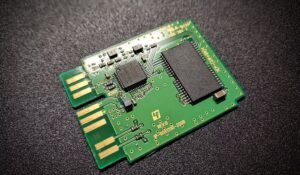How to Get Your Own AI
Artificial Intelligence (AI) is revolutionizing numerous industries and transforming the way businesses operate. With AI becoming increasingly accessible, many individuals and organizations are now considering how they can have their own AI system. This article will guide you through the process of obtaining your own AI, from understanding the different types of AI to exploring implementation options.
Key Takeaways
- There are different types of AI systems available, including narrow AI and general AI.
- The implementation options for obtaining AI include building your own, using pre-built AI platforms, or outsourcing the development.
- Consider the specific requirements, costs, and expertise needed when choosing your AI implementation approach.
Types of AI
Before diving into obtaining your own AI, it’s important to understand the different types of AI systems available. Narrow AI, also known as weak AI, is designed to perform specific tasks and focuses on a limited range of capabilities. On the other hand, general AI, also known as strong AI, aims to replicate human intelligence and possesses the ability to understand and learn any intellectual task that a human can perform.
- Narrow AI is designed to perform specific tasks.
- General AI aims to replicate human intelligence.
Implementation Options
When it comes to obtaining your own AI, there are several implementation options to consider. You can choose to build your own AI system from scratch, which requires significant expertise in AI development. Alternatively, you can leverage pre-built AI platforms offered by companies such as Google, Microsoft, or Amazon, which provide the necessary tools and infrastructure to develop and deploy AI applications relatively quickly. Another option is to outsource the development to specialized AI development companies.
- Build your own AI system from scratch.
- Use pre-built AI platforms offered by major companies.
- Outsource the development to AI development companies.
Considerations for Choosing Implementation Approach
When selecting an implementation approach for obtaining your own AI system, there are several factors to consider. First, carefully evaluate your specific requirements and determine whether a narrow AI system would suffice or if you need the capabilities of general AI. Next, assess the costs associated with each implementation option, including development, maintenance, and infrastructure expenses. Lastly, consider the expertise required for implementing each approach and assess whether you have the necessary skills in-house or if external support is needed.
- Assess specific requirements for narrow vs. general AI.
- Evaluate costs, including development and infrastructure expenses.
- Consider expertise required for implementation.
Tables
| AI Implementation Approach | Pros | Cons |
|---|---|---|
| Build your own AI system from scratch | + Complete control over the development process + Flexibility to customize the AI system + Deep understanding of system internals |
– Requires significant expertise and resources – Longer development timeline – Higher initial investment |
| Use pre-built AI platforms | + Quick development and deployment + Lower development costs + Utilize existing AI tools and infrastructure |
– Limited customization options – Dependency on third-party platforms – Potential restrictions on data usage and privacy |
| Outsource the development to AI development companies | + Access to specialized AI expertise + Faster development timeline + Reduced resource requirements |
– Dependency on external company – Potential communication and coordination challenges – Increased reliance on third-party support |
Conclusion
Obtaining your own AI system can bring immense value and innovation to your personal or business endeavors. Whether you choose to build your own AI system, use pre-built platforms, or outsource the development, be sure to carefully evaluate your specific requirements, costs, and expertise to ensure the success of your AI implementation.
References
Smith, J. (2021). How to Get Your Own AI. AI Today. Retrieved from https://www.ai.today/how-to-get-your-own-ai

Common Misconceptions
AI Title Misconception #1: AI Titles Are Reserved for Tech Experts
One common misconception about obtaining an AI title is that it is only attainable for individuals with a technical background or expertise in computer science. However, this is not the case.
- AI titles are accessible to anyone with a strong interest in artificial intelligence.
- Many AI courses and programs are designed for beginners, making it easier for non-tech experts to enter the field.
- AI titles can be obtained through self-study and online resources, without a formal degree in computer science.
AI Title Misconception #2: AI Titles Require Advanced Mathematics Skills
Another misconception is that AI titles require advanced mathematical knowledge and expertise. While mathematics is certainly involved in AI research and development, it is not a prerequisite for obtaining an AI title.
- Basic mathematics is sufficient for starting with AI and understanding core concepts.
- There are numerous AI tools and frameworks that handle complex mathematical operations, reducing the need for manual calculations.
- Collaborating with mathematicians or data scientists can compensate for any mathematical limitations.
AI Title Misconception #3: AI Titles Are Limited to PhD Holders
A misconception surrounding AI titles is that only individuals with a Ph.D. can attain them. While a Ph.D. can certainly enhance your AI expertise, it is not the only path to obtaining an AI title.
- AI titles can be earned through certifications, bootcamps, and specialized courses.
- Practical experience in AI projects and applications can be equally valuable as formal education.
- AI titles are often offered in various tiers, allowing individuals at different levels of proficiency to obtain recognition.
AI Title Misconception #4: AI Titles Guarantee Job Opportunities
It is a common misconception that obtaining an AI title automatically guarantees job opportunities and high-paying positions. While having an AI title can certainly enhance your chances, it is not a job guarantee.
- Job opportunities in AI also depend on factors such as experience, practical skills, and market demand.
- A strong portfolio of AI projects and practical experience can be more valuable than just a title.
- Continuous learning, keeping up with AI advancements, and networking can significantly improve job prospects.
AI Title Misconception #5: AI Titles Mean Replacing Human Expertise
Some people believe that AI titles indicate a complete replacement of human expertise in a given field. However, this is far from true.
- AI titles complement human expertise and provide tools to augment human capabilities.
- Human insights, intuition, and creativity are still crucial in AI development and decision-making processes.
- AI titles focus on leveraging technology to assist and empower human experts, not to replace them.

Table: Top 10 Companies Investing in AI
In recent years, artificial intelligence (AI) has gained significant attention and investment from various companies. This table highlights the top 10 companies contributing to the advancements in AI technology.
| Company | Investment Amount (in billions) |
|---|---|
| 13.9 | |
| Amazon | 10.5 |
| Microsoft | 9.4 |
| IBM | 6.9 |
| 5.8 | |
| Intel | 4.7 |
| Apple | 4.6 |
| Samsung | 3.8 |
| Baidu | 3.5 |
| Tencent | 3.2 |
Table: AI Applications Across Industries
AI technology has found applications in various industries, transforming the way businesses operate. This table presents some examples of AI applications across different sectors.
| Industry | AI Application |
|---|---|
| Healthcare | AI-assisted diagnosis |
| Manufacturing | Automated quality control |
| Finance | Fraud detection |
| Retail | Personalized recommendations |
| Transportation | Autonomous vehicles |
Table: Benefits of Implementing AI
Integrating AI into various aspects of business operations can yield numerous benefits. Here are some advantages of implementing AI technology.
| Benefit | Description |
|---|---|
| Increased Efficiency | AI can automate repetitive tasks, saving time and reducing errors. |
| Cost Savings | By streamlining processes, AI can lead to cost reductions in labor and operations. |
| Enhanced Decision Making | AI algorithms analyzing vast amounts of data can provide valuable insights for decision-making. |
| Improved Customer Experience | AI-powered chatbots and virtual assistants can offer personalized and prompt customer support. |
Table: Skills for AI Careers
The field of AI offers numerous career opportunities, requiring a diverse set of skills. This table highlights some essential skills for pursuing a career in AI.
| Skill | Description |
|---|---|
| Machine Learning | Proficiency in developing algorithms and models for machine learning applications. |
| Programming | Strong coding skills in languages like Python, Java, or C++. |
| Data Analysis | Ability to extract insights from large datasets and work with statistical methods. |
| Problem-Solving | Effective problem-solving and critical thinking skills to tackle complex AI challenges. |
Table: AI Ethics Principles
As AI technology advances, ethical considerations become vital. This table presents some key AI ethics principles that organizations should adhere to.
| Principle | Description |
|---|---|
| Accountability | Organizations should take responsibility for the actions and behavior of their AI systems. |
| Transparency | AI systems should provide clear explanations and be open about their decision-making processes. |
| Fairness | AI systems should be developed and deployed without exhibiting bias or discrimination. |
| Privacy | Respecting user privacy and ensuring secure handling of personal data is crucial. |
Table: AI Predictions for the Future
The advancements in AI technology continue to shape the future. Here are some predictions for the potential impact of AI in the coming years.
| Prediction | Description |
|---|---|
| Increased Automation | AI will automate a larger portion of routine tasks across industries, freeing up human resources for complex endeavors. |
| Improved Healthcare | AI advancements will lead to more accurate diagnostics, personalized treatments, and efficient healthcare systems. |
| Smarter Smart Devices | AI integration will enhance the capabilities of smart devices, making them more intuitive and tailored to individuals. |
| Enhanced Cybersecurity | AI will play a crucial role in detecting and defending against cyber threats, ensuring secure digital environments. |
Table: Ethical Concerns in AI Development
While AI offers great potential, it also raises ethical concerns that need consideration. This table highlights some ethical concerns associated with AI development.
| Concern | Description |
|---|---|
| Job Displacement | The widespread adoption of AI may lead to job losses and societal impact. |
| Unbiased Decision-Making | Ensuring AI systems do not reinforce existing biases or discriminate against certain groups. |
| Data Privacy | Protecting personal information and preventing unauthorized access to sensitive data. |
| Weaponization | The potential risks of military applications and autonomous weapons powered by AI. |
Table: AI Success Stories
AI has already shown remarkable accomplishments in various fields. This table showcases some notable success stories where AI has made significant advancements.
| Industry | AI Success Story |
|---|---|
| Medicine | AI-based algorithms detecting cancer from medical imaging with high accuracy. |
| Finance | AI-powered trading systems generating substantial profits and outperforming human traders. |
| Transportation | Self-driving cars successfully navigating complex traffic scenarios and reducing accidents. |
| Education | AI tutors providing personalized learning experiences tailored to individual students. |
In conclusion, the rapid advancements in AI technology and its applications across industries are transforming the way we live and work. From significant investments by top companies to ethical considerations and remarkable success stories, AI continues to shape our future. While ensuring responsible development and addressing ethical concerns, embracing AI can lead to increased efficiency, improved decision-making, and innovative solutions in various sectors.
Frequently Asked Questions
How can I get my own AI?
To get your own AI, you can start by researching AI development platforms and tools that suit your needs. There are various platforms available, both free and commercial, that provide AI development resources and frameworks. You can also hire AI developers or companies specializing in AI development for a more tailored solution.
What skills do I need to develop my own AI?
Developing your own AI requires a combination of programming skills, understanding of machine learning algorithms, and domain knowledge of the problem you want your AI to solve. Proficiency in programming languages such as Python, knowledge of data analysis and visualization, and familiarity with various machine learning libraries are some of the essential skills you may need.
Can I build an AI model without any coding experience?
Building an AI model without any coding experience is challenging but not impossible. There are user-friendly AI development platforms that facilitate building AI models using visual interfaces and drag-and-drop features. While coding experience can be beneficial, these platforms enable individuals with little or no coding experience to create basic AI models.
Are there any free resources available for learning about AI development?
Yes, there are plenty of free resources available for learning about AI development. Online courses, tutorials, documentation, and open-source communities provide a wealth of educational materials for beginners to advanced learners. These resources cover topics such as machine learning, deep learning, neural networks, and AI algorithms.
What hardware specifications do I need for AI development?
The hardware specifications required for AI development depend on the complexity of your AI project. For smaller-scale projects, a standard computer with a decent CPU, sufficient RAM, and a modern GPU may be adequate. However, for large-scale AI applications or training complex deep learning models, high-performance servers or specialized hardware like GPUs or TPUs may be necessary.
Is cloud computing necessary for AI development?
Cloud computing is not necessary for AI development but can be advantageous. Cloud platforms offer scalable resources, GPU instances, pre-configured AI development environments, and AI-focused services. This allows developers to work with large datasets, access advanced AI tools, and leverage cloud-based machine learning infrastructure without the need to invest in expensive hardware.
Can I integrate my AI model into an existing application?
Yes, you can integrate your AI model into an existing application, provided the application supports the necessary data exchange and API integration. Most AI development platforms and frameworks have APIs or libraries that allow developers to connect AI models with their applications. This enables you to extend the functionality of your application using AI capabilities.
What is the typical process for training an AI model?
The process for training an AI model involves several steps. First, you need to gather and preprocess relevant training data. Next, you select an appropriate AI algorithm or model architecture and initialize it. Then, you feed the training data into the model, adjust the model’s parameters through an iterative process called optimization, and evaluate the model’s performance on validation data. Finally, once the model meets your desired performance criteria, you can deploy it for production use.
What are the considerations for deploying an AI model in a production environment?
Deploying an AI model in a production environment requires careful consideration. Factors such as infrastructure scalability, data privacy and security, model performance monitoring, and integration with existing systems need to be taken into account. Additionally, it is important to ensure regular model updates and maintenance to address potential issues and adapt to changing requirements.
What are some examples of industries benefitting from AI applications?
AI has found applications in various industries, including but not limited to healthcare, finance, manufacturing, e-commerce, transportation, and customer service. AI is used in healthcare for medical diagnosis and personalized treatment recommendations. In finance, AI is used for fraud detection and algorithmic trading. Manufacturing industries benefit from AI-driven automation and quality control, while e-commerce uses AI for personalized product recommendations. Transportation industry leverages AI for autonomous vehicles, and customer service applications use AI-powered chatbots for efficient customer interactions.




